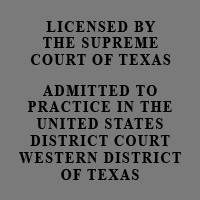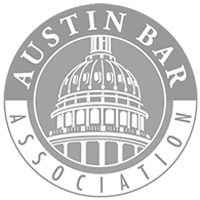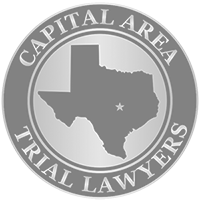Defense Contractor False Certification Lawyer and Military Contractor False Certification Whistleblower Lawyer Handles Defense Contractor False Certification Whistleblower Lawsuits, Military Contractor False Certification Qui Tam Lawsuits, and False Certification of Military Weapons Lawsuits by Defense Contractor False Certification Lawyer and Military Contractor False Certification Whistleblower Lawyer Jason S. Coomer
War profiteering and fraudulent defense contractors have cost the United States Billions of Dollars through corrupt businesses seeking payment from the government for defective products, services that were never provided, and dangerous products. Relators and Whistle Blowers are encouraged to blow the whistle on defense contractors that cheat the government through False Certification of Product Quality, Product Substitution, Cross Charging, False Certification of Services Provided, Charging for Services or Goods not provided, Violations of the Truth-in-Negotiations Act ("TINA"), and Improper Cost Allocation.
If you are aware of a corrupt defense contractor or other large government contractor that is defrauding the United States Government out of millions or billions of dollars and or is selling the United States Defective Goods or Services, please feel free contact Texas Military Contractor False Certification Whistleblower Lawyer and Defense Contractor False Certification Lawyer, Jason Coomer, for a free online review of your potential Defense Contractor False Certification Lawsuit or feel free to also use our online submission form.
Also, please feel free to go to the following web site: Whistleblower, False Claims Act & Qui Tam Information.
Common Types of Defense Contractor Fraud and False Certifications that Lead to False Claims Act Lawsuits
Defense contractor fraud is a common way that government contractors defraud the United States Government and taxpayers out of large amounts of money. Many whistle blowers have been successful in blowing the whistle on fraudulent defense contractors to reveal fraud schemes that put our troops in danger and steal money from the United States. Under False Claims Act litigation billions of dollars are regained from these fraudulent defense contractors. Some common ways defense contractors cheat the government are False Certification of Product Quality, Product Substitution, Cross Charging, False Certification of Services Provided, Charging for Services or Goods not provided, and Violations of the Truth-in-Negotiations Act ("TINA"), and Improper Cost Allocation.
False Certification of Product Quality commonly occurs after a product has been approved for mass production. The original prototypes of a product are typically created with high quality materials and parts including strong metals, seals, plastics, and components. However, after the original prototypes have been tested and approved, some defense contractors use inferior parts and materials to lower costs that make weapons, ships, vehicles, computers, electronics, and other military goods less reliable, weaker, and more prone to not work when needed. The defense contractor that provides a false certification of a product's quality has committed a false certification that may subject the defense contractor to a False Certification of Product Quality False Claims Act Law Suit.
The Defense of Department often requires its contractors to build weapons systems in accordance with very detailed product specifications because quality and reliability are critical with weapons systems and other military equipment. Failure to comply with these specifications and falsely certifying that these specifications were met can cause death and place our troops in danger. As such it is extremely important that appropriate quality assurance steps are taken in building or producing weapons systems and other military equipment and that a defense contractor's certification of compliance with these specifications can be trusted.
Similar to False Certification of Product Quality Qui Tam Claims are Product Substitution False Claims. These claims occur when a Defense Contractor that is under a government contract that specifies that the defense contractor build products using a certain grade, quality of parts, or materials & parts from American companies, fails to comply with the contract. These Defense Contractors often decide it is more profitable to use or substitute inferior parts or parts not made by American companies. Defense Contractors that use inferior parts or parts not made by American Companies as required by their government contract may be subject to a Product Substitution False Claim Act Law Suit.
Cross-Charging occurs when a Defense Contractor has a fixed-price contract, where the company receives a fixed price for a certain number of weapons no matter how much it costs to produce them and another that is a "cost-plus" contract, where the government pays the company for the cost of making the weapons, plus a percentage of its costs as a profit. In this circumstance the Defense Contractor has an economic incentive to charge the time it spends working on the fixed-price contract (where it gets paid the same no matter how much time it takes) to the cost-plus contract (where it gets paid for its costs plus profit). This may be accomplished by instructing employees to write down on their time cards that they worked on the cost-plus contract when they actually worked on the fixed-price contract. A Defense Contractor that charges fixed price work on a cost-plus contract is creating false claims or false certifications that may subject them to a Cross-Charging False Claims Act Law Suit.
Improper cost allocation false claims are a more subtle version of the cross-charging scheme. In this type of false claim, a defense contractor with government contracts and private commercial contracts fails to spread or allocate their costs fairly among the different jobs. These types of false claims are typically more difficult to detect as the defense contract usually tries to hide the misallocation in indirect costs or bury the misallocations in hard to interpret records. These improper allocation false claims are more common in large contracts where the product has military uses and private uses such as with large aircraft companies. Defense Contractors that deliberately allocate a disproportionate share of indirect or overhead costs to the government for the purpose on increasing there profits may cause themselves to be subject to Improper Allocation False Claims Law Suits, if the correct whistle blower reports the fraud.
When the government wants to purchase highly specialized weapons, military services, or other military equipment, it often is limited to one potential defense contractor because of the specialized need. This limited supply often creates monopoly power in the "sole-source supplier". This creates a problem in making sure that the sole-source supplier does not over charge the government for the good or services that it is supplying to the government. The Truth In Negotiation Act (TINA) requires the Defense Contractor to truthfully disclose all relevant information about its costs to the government in sole-source contract negotiations. Defense Contractors that submit false cost and pricing data to the Defense Department or failure of a sole-source Defense Contractor to provide accurate cost information to intentionally inflate costs to increase profits can cause liability for a violation of the Truth In Negotiation Act and result in a Truth In Negotiation Act Violation False Claims Act Law Suit.
History of Qui Tam Lawsuits and Defense Contractor Fraud Lawsuits
Defense Contractor lawsuits have existed for centuries as deceptive government contractors have been around as long as government contracting has. Qui tam actions allow private citizens to file a lawsuit on behalf of the U.S. government in an effort to recover losses caused by fraud against the government. This law is an incentive for civilians with specialized knowledge who know of individuals or companies making false claims for profit to come forward with information. In reward, the "whistleblower" (also known as the relator) shares in any federal revenue recovered.
For more on the history of Defense Contractor Fraud Lawsuits and Qui Tam Lawsuits, go to the following article on Qui Tam Claims.
Qui Tam Lawsuits and Defense Contractor Fraud Lawsuits
In 1986 as a result of increased government contractor fraud, Congress amended the False Claims Act in order to make it easier for whistleblowers to file claims against fraudulent corporations and individuals. The act also help protect the Whistleblower or Relator from retaliation.
The 1986 Amendment defines a "claim" as:
"...any request or demand which is made to a contractor, grantee, or other recipient if the United States Government provides any portion of the money or property which is requested or demanded, or if the government will reimburse such contractor, grantee, or other recipient for any portion of the money or property which is requested or demanded."
The whistleblower's share of recovery is a maximum of 30 percent and the government's prior knowledge of fraud now does not necessarily bar a whistleblower from collecting lost revenue. If the government took over the lawsuit, the relator can "continue as a party to the action." The defendant is also required to pay for the relator's attorney fees. The whistleblower is also protected from retaliatory actions by his or her employer. As a result or the amendment, qui tam lawsuits increased dramatically. Though the amendment was first made fore corrupt defense contractors, the amendment has uncovered billions of dollars in health care fraud.
Anyone who defrauds the government out of revenue can be held accountable under the False Claims Act. Common defendants include defense contractors, health care providers, other government contractors & subcontractors, state and local government agencies, and private universities. Whistleblowers often include current and former employees of the defrauding company, competitors of government contractors and public interest groups.
The False Claims Act was enacted to encourage private citizens to assist the government in the fight against fraud. Often the whistleblower faces an uphill battle as large, powerful corporations or individuals are usually named as defendants. An experienced attorney in qui tam claims may help you gain a percentage of stolen government funds.
Defense Contractor Fraud Claims in the News
The United States Department of Defense spending for goods and services in Fiscal Year 2007 exceeded $300 billion. With this increased budget has come relaxed oversight and regulation. Quality control and proper testing of these good and services has become lax as documentation for large defense contracts has been reduced allowing fraudulent contractors to get away with defrauding the Pentagon, Department of Defense, and United States.
Recently several news stories have surfaced regarding suspected defense contractor fraud and government contractor fraud. Below are brief exerts of some news stories on potential Defense Contractor Fraud Claims and Government Contractor Fraud Claims. For more information follow the links to these stories.
Army Overseer Tells of Ouster Over KBR Stir By JAMES
RISEN
Published: June 17, 2008
New York Times
WASHINGTON — The Army official who managed the Pentagon’s largest contract in Iraq says he was ousted from his job when he refused to approve paying more than $1 billion in questionable charges to KBR, the Houston-based company that has provided food, housing and other services to American troops.
Qui tam actions typically revolve around false claims that are either directly or indirectly presented to the Government for "payment or approval." These false claims can be generated through the submission of false bills, records, statements or other representations made to the Government.
Iraq Spending Ignored Rules, Pentagon
Says By JAMES GLANZ
Published: May 23, 2008
New York Times
A Pentagon audit of $8.2 billion in American taxpayer money spent by the United States Army on contractors in Iraq has found that almost none of the payments followed federal rules and that in some cases, contracts worth millions of dollars were paid for despite little or no record of what, if anything, was received.
The audit also found a sometimes stunning lack of accountability in the way the United States military spent some $1.8 billion in seized or frozen Iraqi assets, which in the early phases of the conflict were often doled out in stacks or pallets of cash. The audit was released Thursday in tandem with a Congressional hearing on the payments.
U.S. Widens Net on Pricing of Food
Supplies for G.I.’s By ERIC SCHMITT and ANDREW MARTIN
Published: October 18, 2007
New York Times
WASHINGTON, Oct. 17 — Federal agents are investigating whether several large food companies charged the government excessively high prices for supplies to American troops in Iraq and Kuwait, administration officials said Wednesday.
Qui Tam Claims, False Claims Act, and Defense Contractor Fraud Lawsuits
There are several types of Qui Tam claims covered under the False Claims Act:
-
Mischarging or overcharging for goods or services.
-
Improper price data and the request for payment for services never provided.
-
Holding government property for fraudulent purposes.
-
Avoiding payment of a debt to the government because of illegal reasons.
-
Knowingly providing the government with defective or dangerous products that were falsely certified.
-
Falsely certifying information for the entitlement of benefits.
-
Having any false claim paid by the government.
The mischarging case is the most common type of qui tam case filed. Mischarging cases generally involve filing false claims for goods or services that were not provided or delivered. A common mischarging scenario is employee labor charged to a government contract not worked on. Other common mischarging schemes are claims made to the Government for medical services not rendered or for services performed by an attending physician when the service was actually performed by a nurse or other provider that should have been billed at a lower rate.
Another type of case is the false negotiation or defective pricing case that involves the submission of false cost and pricing data to the Government. This scheme, which takes on many forms, involves the submission of false costs or pricing data to the Government during the negotiation of a contract that subsequently results in an inflated contract price.
Other common types of cases involve product and service substitution and false certification of entitlement for benefits. Examples of product and service substitution are falsely certifying that a product meets specifications, false testing schemes such as falsely certifying that reliability testing was conducted and providing an inferior service or product. Examples of false certification of entitlement cases are falsely certifying information for FHA mortgage guarantees and price supports.
Potential heroes that blow the whistle on government fraud and corruption include employees, engineers, accountants, inspectors, manufacturers, suppliers, former employees, high-level executives, sub contractors, general contractors, and people working with major defense contractors, telecommunications companies, and large health care organizations.
Defense Contractor False Certification Whistleblower Lawyers, Military Contractor False Certification Whistleblower Lawyers, and Qui Tam Defense Contractor False Certification Lawyers, Qui Tam Lawsuit Lawyers and Defense Contractor Fraud Lawsuit Lawyers
If you are aware of a defense contractor, health care provider, financial institute, or other large contractor or subcontractor that is defrauding the United States Government out of millions or billions of dollars, contact Defense Contractor False Certification Lawsuit Lawyer Jason Coomer. As a Texas Defense Contractor False Certification Lawsuit Lawyer, he works with other powerful Qui Tam Lawsuit Lawyers that handle large governmental contractor fraud cases through out the nation. He works with New York False Certification Lawyers, Virginia Faulty Military Weapons Lawyers, San Antonio Defense Contractor False Certification of Service Lawyers, Dallas False Certification of Military Weapons Lawyers, Houston Whistle Blower Defense Contractor Lawyers, and other United States False Certification Qui Tam Lawyers that work throughout the nation to blow the whistle on fraud that hurts the United States and our armed forces.
Defense Contractor False Certification Whistleblower Lawyer, Military Contractor False Certification Whistleblower Lawyer, and Qui Tam Defense Contractor False Certification Lawyer
If you are aware of a corrupt defense contractor or other large government contractor that is defrauding the United States Government out of millions or billions of dollars and or is selling the United States Defective Goods or Services, please feel free to contact Texas Military Contractor False Certification Whistleblower Lawyer and Defense Contractor False Certification Lawyer, Jason Coomer, for a free online review of your potential Defense Contractor False Certification Lawsuit or feel free to also use our online submission form.
Feel Free to Contact Us with any Questions
Associations




